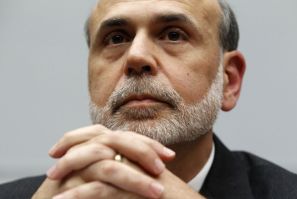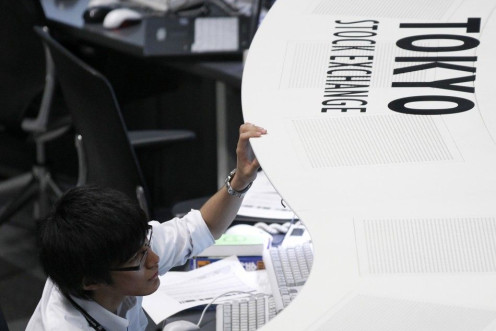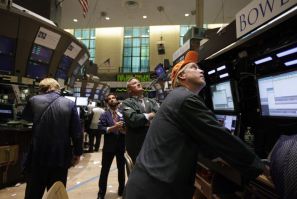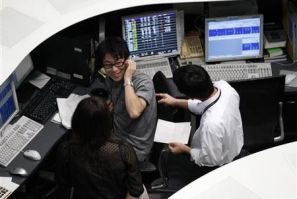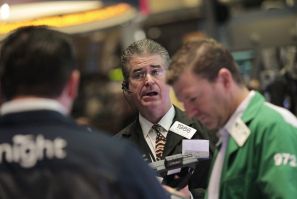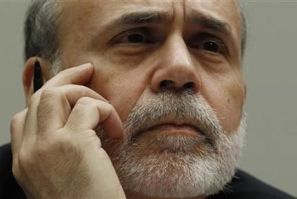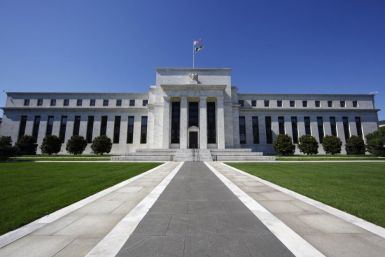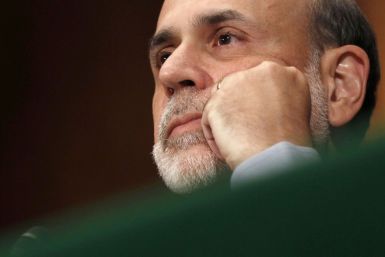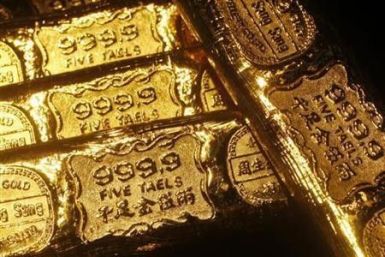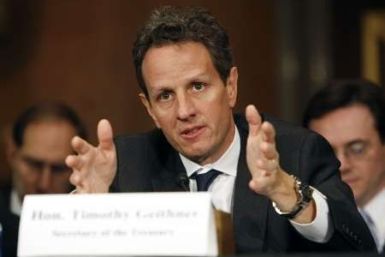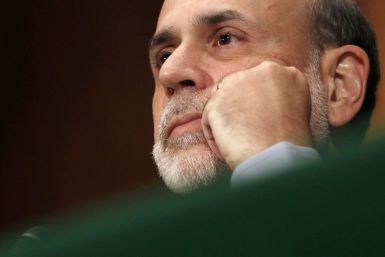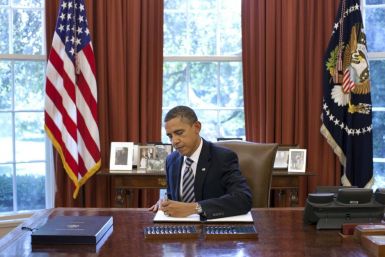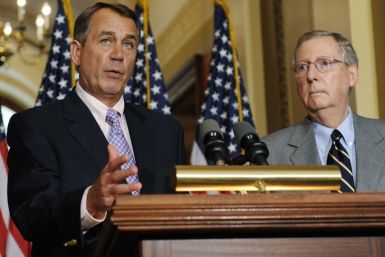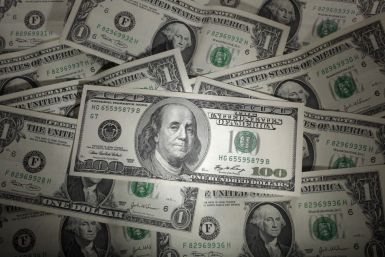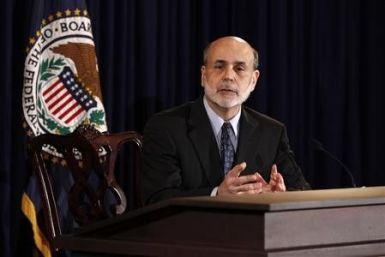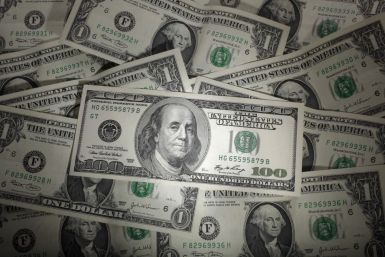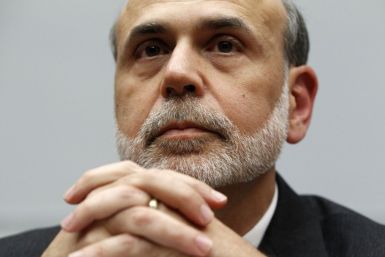In response to a slowing economy, the U.S. Federal Reserve, despite some internal dissent, announced Tuesday that it plans to keep monetary policy stimulus in place, noting that it will keep short-term interests rates exceptionally low through at least mid-2013. The Fed will also continue to reinvest bond proceeds maturing in its portfolio.
The U.S. Federal Reserve will announce its monetary policy Tuesday following an unprecedented downgrade of the U.S.Government's credit rating by Standard & Poor's and the markets will likely look to Fed Chairman Ben Bernanke to provide appropriate comments on the state of the nation's banking system and its fiscal condition.
Gold vaulted to record highs above $1,700 an ounce on Monday, surging nearly 3 percent as European Central Bank's buying of Italian and Spanish bonds failed to ease debt fears after Standard & Poor's cut the top-notch AAA credit rating of the United States.
Gold vaulted above $1,700 an ounce for the first time on Monday after pledges by the G7 and the European Central Bank to quell the turbulence in the financial markets did nothing to put investors at ease.
Bullion roared to record highs above $1,700 an ounce on Monday as an unprecedented downgrade to the U.S. credit rating sent investors scrambling out of riskier assets, hammering equity markets and the dollar.
Japan's Nikkei stock average slid more than 2 percent on Monday as weak sentiment following Standard & Poor's downgrade of the United States' credit rating was exacerbated by futures selling after Asian markets tumbled.
Bullion roared to a record on Monday above $1,700 an ounce as an unprecedented downgrade to the U.S. credit rating sent investors scrambling out of riskier assets, hammering equity markets and the dollar.
Chinese economists said the U.S. credit rating downgrade by Standard & Poor's poses great risk to financial markets and expect it to prompt China, the world's biggest holder of U.S. Treasuries, to accelerate the diversification of its holdings.
China roundly condemned the United States for its "debt addiction" and "short sighted" political wrangling and said the world needed a new stable global reserve currency.
More than $2.5 trillion have been wiped off the value of world stocks this week on mounting concerns the global economy is heading toward another recession and Italy and Spain are being engulfed by the euro zone sovereign debt crisis.
The U.S. economy unexpectedly added 117,000 jobs in July and the unemployment rate dipped to 9.1 percent, the U.S. Labor Department announced Thursday. Equally significant, the private sector added 154,000 jobs. The report was a pleasant surprise, but the nation is still in a deep hole job-wise -- short about 14 million jobs.
The U.S. debt deal means that federal spending will now generate even less demand in the quarters ahead, in an economy that?s already weak, and with an unemployment rate at 9.2 percent. To say the Fed has been monitoring the situation would be an understatement.
New U.S. claims for unemployment benefits were little changed last week, a government report showed on Thursday, pointing to a marginal improvement in the labor market.
A Beijing-based ratings agency on Wednesday downgraded the U.S. sovereign debt rating, while Western agencies such as Fitch and Moody?s reaffirmed their AAA rating, following Congressional approval of a plan to raise the debt ceiling.
The increase in the debt ceiling is only half of what President Obama was asking for and will therefore create another round of default trauma when the next debt ceiling is reached. I
Anemic U.S. growth is not enough to prompt Federal Reserve Chairman Ben Bernanke to call for a new round of monetary stimulus.
Fading hopes the Congress will strike a deal in debt talks any time soon have left investors scrambling to position themselves for what many now view as an inevitable downgrade of the U.S
U.S. money managers sitting on piles of cash are sniffing out opportunities to make a killing on the political circus in Washington over raising the nation's debt ceiling.
The U.S. Federal Reserve's much criticized bond buying spree had only mild side-effects on other economies but the process of tightening monetary policy eventually may reverberate more harshly, an IMF report said on Monday.
U.S. Federal Reserve Chairman Ben Bernanke said on Wednesday that the Fed was prepared to take action to reverse any slowdown in the economic recovery, including another round of quantitative easing.
Still doubt the good faith and credit of the U.S. Government? Consider this: in June, PIMCO's Bill Gross, the head of the world's largest bond fund, increased his holdings of U.S. Treasury bonds, commonly known as Treasuries.
The head of the world's most powerful central bank said Wednesday a third round of quantitative easing, QE3, may be up ahead, if the tepid U.S. economic recovery doesn't improve. However, Fed Chairman Ben Bernanke, in Congressional testimony, underscored that the Fed is also considering other options -- or a monetary tightening -- if the recovery gains strength.




